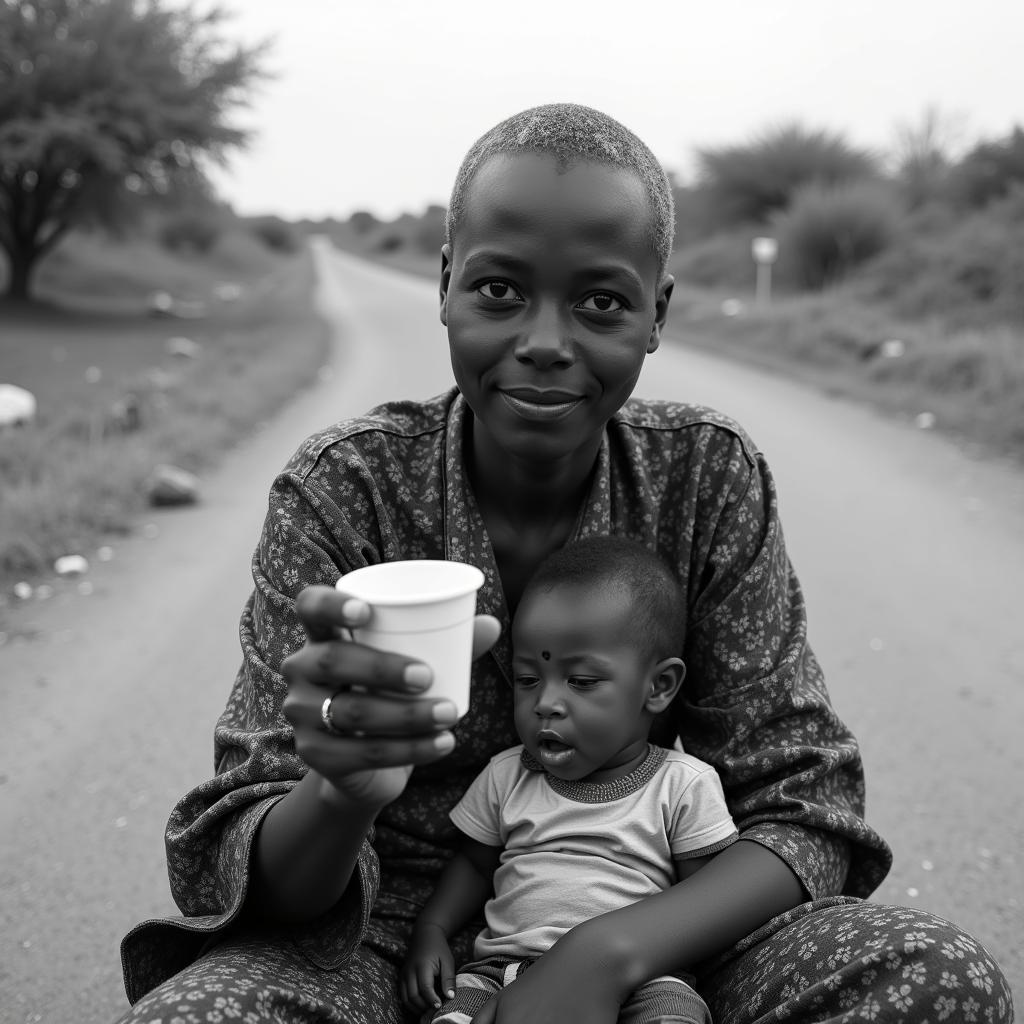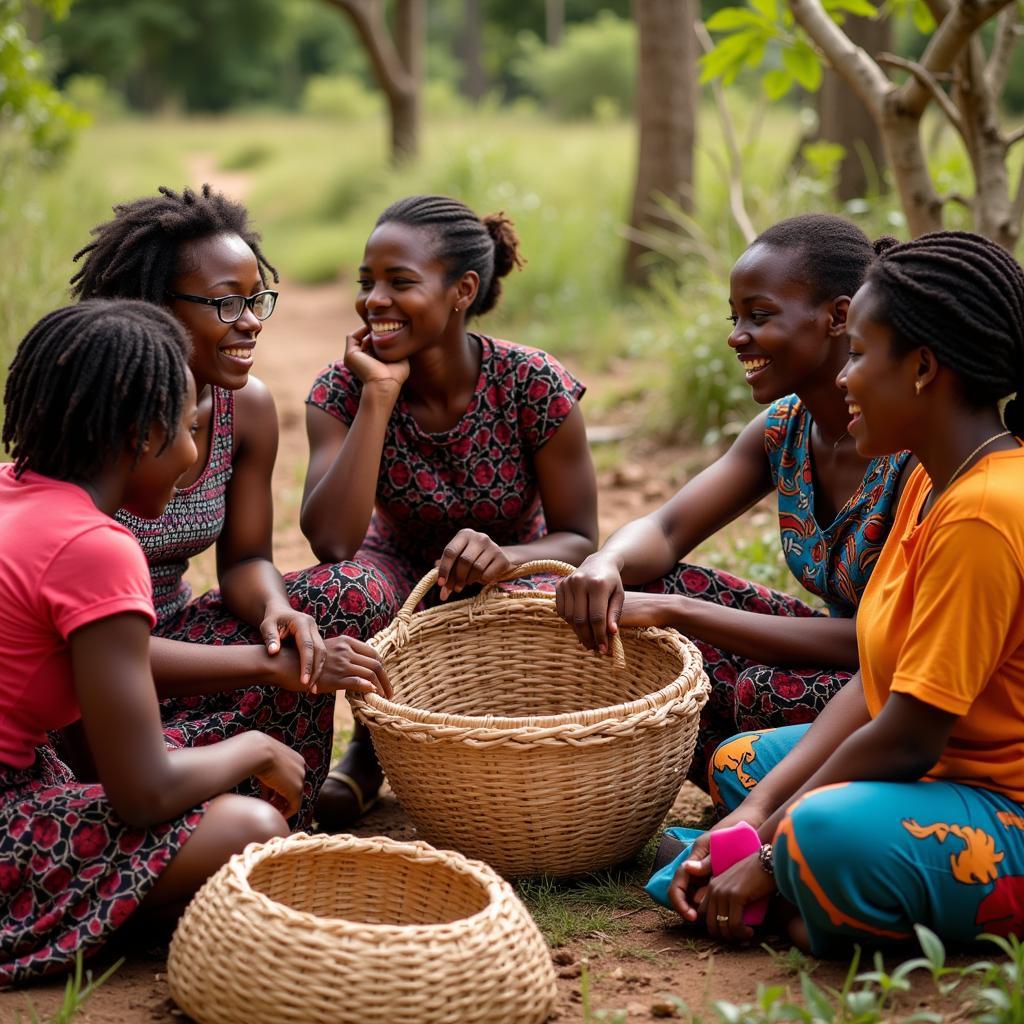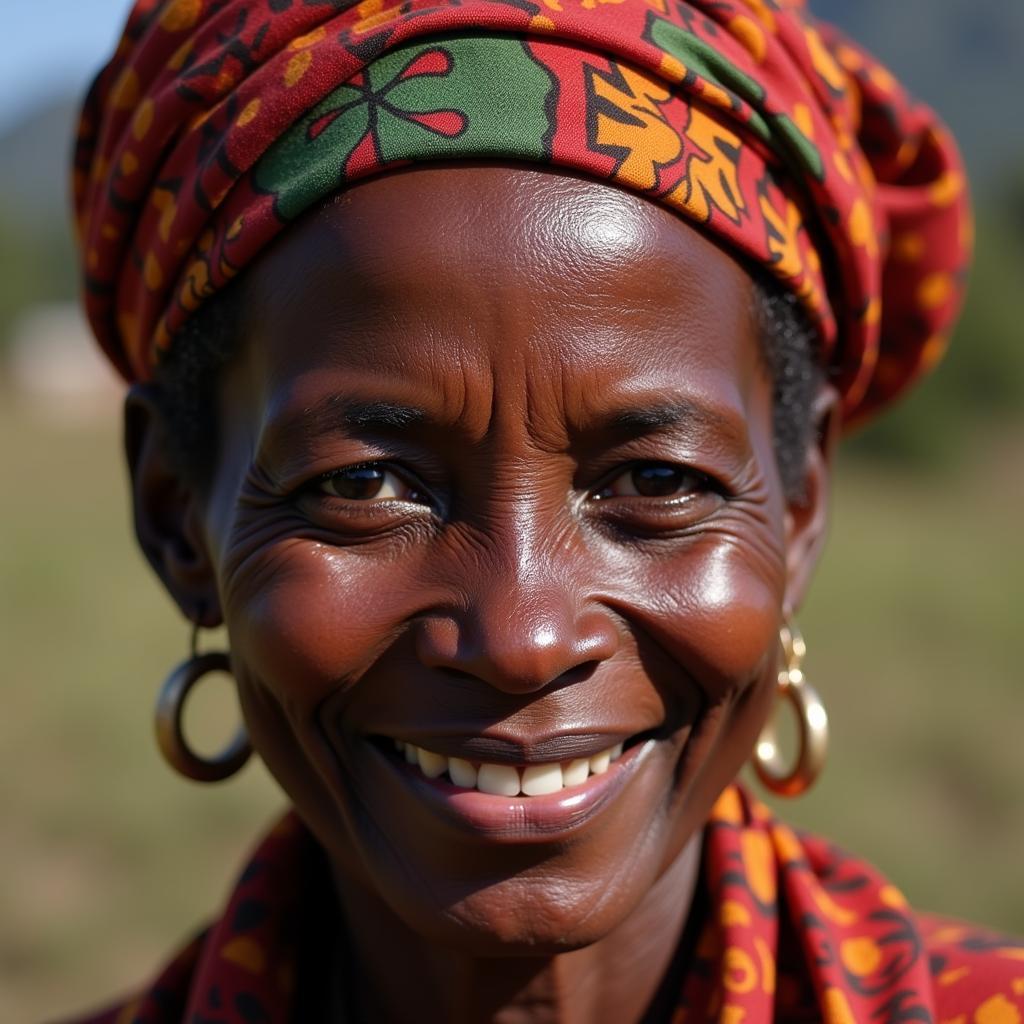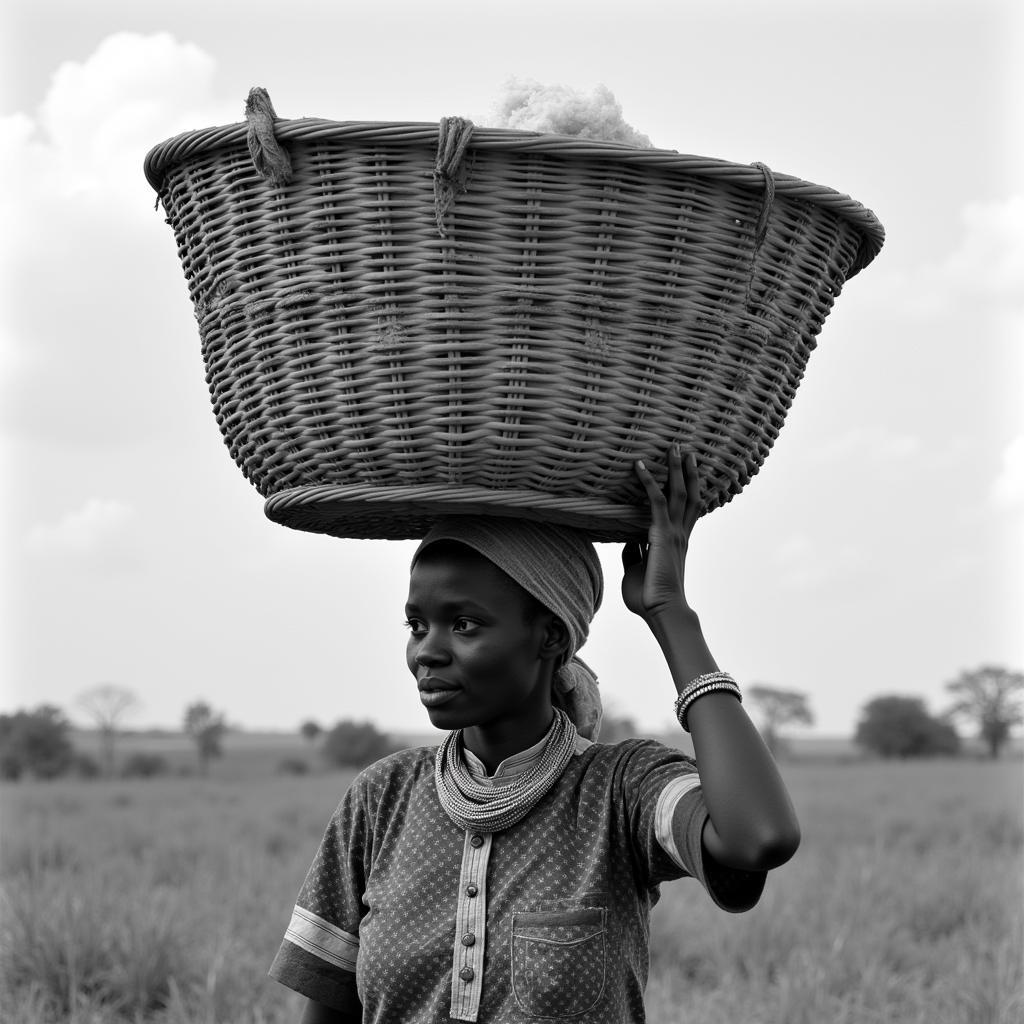The Reality of African Lady Beggars: Beyond the Stereotype
African Lady Beggars. A phrase often uttered with a mixture of pity and judgment. Yet, the reality of these women’s lives is far more complex than a passing glance or a fleeting thought can encompass. Across the vast and diverse continent of Africa, women find themselves in situations that lead them to begging for a multitude of reasons – some entrenched in poverty, others shaped by circumstance, and many interwoven with cultural and societal norms.
Unveiling the Layers: Why Do Some Women Resort to Begging?
While it’s crucial to steer away from generalizations, understanding the common threads that run through the lives of African lady beggars can shed light on a multifaceted issue often shrouded in misconception.
Poverty: The Unrelenting Shadow
The most prominent and undeniable factor is poverty. In many parts of Africa, economic hardship casts a long shadow, disproportionately affecting women. Limited access to education and employment opportunities, coupled with societal expectations that often relegate women to caregiving roles, creates a perfect storm that leaves many vulnerable and economically marginalized.
Disability and Lack of Support
For women living with disabilities, the challenges are often amplified. In regions where social safety nets are weak or nonexistent, begging can become a means of survival, a desperate attempt to secure basic needs like food, shelter, and healthcare.
Displacement and Conflict
Africa, unfortunately, bears the brunt of numerous conflicts and humanitarian crises. These events leave countless women displaced, widowed, and stripped of their livelihoods. Begging, in these heart-wrenching situations, can become a last resort for survival, a way to sustain themselves and their children amidst unimaginable loss and uncertainty.
 African Woman with Child Begging
African Woman with Child Begging
Cultural Context: Begging as a Complex Social Phenomenon
Understanding the context of begging in Africa requires acknowledging its cultural dimensions. In some African societies, begging, particularly by women, is deeply intertwined with traditional structures.
Alms-Giving and Religious Obligations
In many African cultures, acts of charity and alms-giving hold significant religious and social value. This can create a complex dynamic where begging, while often driven by necessity, is also perceived as a socially acceptable means of seeking assistance within a framework of communal responsibility.
Social Hierarchy and Power Dynamics
It’s also crucial to acknowledge the power dynamics at play. Begging, in some instances, can be a reflection of deeply ingrained social hierarchies and gender roles, where women, especially widows or those from marginalized communities, have limited avenues for recourse or support.
Beyond the Stereotype: Empowering Solutions
While understanding the factors that contribute to begging is vital, it’s equally important to focus on sustainable solutions that empower women and address the root causes.
Education and Economic Empowerment
Investing in girls’ education and providing women with equal opportunities to acquire skills and participate in the workforce are critical steps towards breaking the cycle of poverty.
Strengthening Social Safety Nets
Establishing robust social safety nets, including cash transfer programs, healthcare access, and support for people with disabilities, can provide a much-needed lifeline for vulnerable women.
Addressing Conflict and Displacement
Efforts to resolve conflicts, promote peacebuilding, and provide comprehensive support for refugees and internally displaced persons are crucial to alleviate the humanitarian crises that force many women into desperate situations.
 African Women Participating in Empowerment Program
African Women Participating in Empowerment Program
Challenging Perceptions: A Call for Empathy and Action
The next time you encounter the phrase “African lady beggars,” remember the stories behind the label. Remember the complex interplay of poverty, circumstance, and societal structures. And most importantly, remember that true change comes from understanding, empathy, and a commitment to creating a more just and equitable world for all.
FAQ
Why do some African women beg on the streets?
African women resort to begging for a variety of reasons, including poverty, disability, displacement due to conflict, and societal expectations that limit their economic opportunities.
Is begging considered acceptable in some African cultures?
Yes, begging can be a complex social phenomenon in some African cultures. It can be tied to traditional practices of alms-giving, religious obligations, and social hierarchies.
What are some ways to help African lady beggars beyond giving money?
Supporting organizations that focus on education, economic empowerment, healthcare, and conflict resolution are impactful ways to create sustainable change.
 African Woman Smiling with Hope
African Woman Smiling with Hope
Need Help or More Information?
For support or further inquiries, please reach out to us:
Phone: +255768904061
Email: [email protected]
Address: Mbarali DC Mawindi, Kangaga, Tanzania.
Our dedicated team is available 24/7 to assist you.

